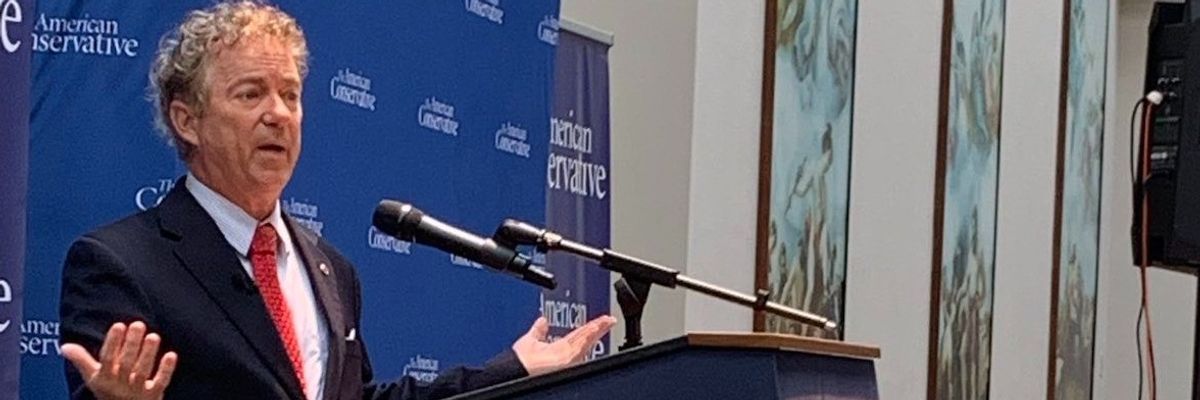Senator Rand Paul acknowledged Thursday that his fellow Republicans are obsessed with China — war with China, that is.
The Kentucky Republican told an audience at the American Conservative's annual foreign policy conference that he is concerned that hawks on Capitol Hill are going to march the country right into a conflict.
“You come to my Republican caucus and you’ll hear the beating of drums. These are drums for war with whomever, but primarily war with China. Everything is about war with China.”
Not everyone is high on the idea of conflict, he added. “I was in Hawaii recently, talking with some folks from our military out there in the Pacific. One of the higher ranking members came up to me and said, ‘take this message back to your fellow Senators: war with China is not inevitable.’”
"My goodness, shouldn’t we be talking about how to avoid war with China, not making it inevitable?"
"We have had an uneasy peace with China, we’ve have an uneasy relationship between China, the U.S. and Taiwan," Sen. Paul noted, but in the Committee on Foreign Relations, where he holds a seat, “there’s a new bill out each week on Taiwan, which usually includes harsh language on China, on how we’re going to war-plan, and what we're going to do when China does this or that.”
Paul added: "My point is that the less ambiguous you make your policy, the more you rant and rave, the more you make your policy more explicit for war,” the more dangerous and less leverage the U.S. has in the situation. “Strategic ambiguity has kept the peace for 50 years,” Paul charged.
The senator reinforced the importance of seeing foreign policy through the lens constitutional conservatism, something that his colleague Sen. Mike Lee (R-Utah) espoused in his own remarks at the conference. Paul said he would continue to push for the repeal of the 2001 AUMF (Authorization for the Use of Military Force), and is poised to criticize any use of a future Ukraine aid bill or emergency spending to pad the Pentagon budget.
He also doubted that there has been enough effort to end the war in Ukraine (he had signed a letter to President Biden earlier this year opposing new Ukraine aid without a strategy for peace). “That country is being destroyed. Give it another year and it will be more destroyed. There ultimately must be a peace. If you think wars are going to end by the good defeating evil you are not being realistic. You need a negotiated peace.”
















